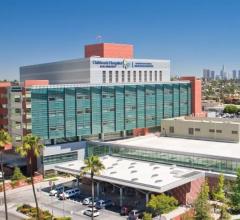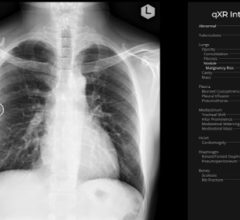
May 7, 2015 — The American Society for Radiation Oncology (ASTRO) is issuing a new guideline, “Definitive and adjuvant radiotherapy in locally advanced non-small cell lung cancer: An American Society for Radiation Oncology (ASTRO) evidence-based clinical practice guideline.” The guideline’s executive summary is published in the May-June issue of Practical Radiation Oncology (PRO), ASTRO’s clinical practice journal. The complete guideline, which cites 35 years of data to help guide current treatment and future research, is available online as an open-access article in PRO. The American Society of Clinical Oncology (ASCO) issued an endorsement of ASTRO’s guideline.
ASTRO’s guideline panel included 14 leading lung cancer oncologists in the U.S. and Canada, reviewing 74 studies from English language publications within the PubMed database, published from Jan. 1, 1966 to March 15, 2013. The panel developed five Key Questions on the role of definitive and adjuvant radiation therapy (RT) for locally advanced non-small cell lung cancer (LA NSCLC), which represents nearly one-quarter of all lung cancer patients. In addition to the 74 studies, 27 published clinical practice guideline documents that were relevant to one or more of the five Key Questions were reviewed to ensure the guideline panel obtained all appropriate clinical trial reports.
The first Key Question addresses the ideal external beam dose fractionation for curative-intent treatment of LA NSCLC with RT alone without chemotherapy. The evidence cited in the guideline suggests that RT alone was associated with improved overall survival when compared with observation strategies or chemotherapy alone; however, patients experienced treatment-related side effects such as esophagitis and pneumonitis. RT may be used alone as definitive radical treatment for patients with LA NSCLC who are not eligible for combined modality therapy. A minimum dose of 60 Gy is recommended to optimize clinical outcomes such as local control.
The second Key Question examines the ideal external beam dose fractionation for curative-intent treatment of LA NSCLC with chemotherapy. The standard thoracic RT dose fractionation for patients treated with concurrent chemotherapy is 60 Gy, administered as 2 Gy, once a day for six weeks. It has not been demonstrated that increasing the dose beyond 60 Gy with conventional fractionation is associated with any clinical benefits, including overall survival.
The third Key Question details the ideal timing of external beam RT in relation to systemic chemotherapy for curative-intent treatment of LA NSCLC. The guideline recommends that when RT and chemotherapy are used to treat LA NSCLC, RT should ideally begin at the same time chemotherapy begins (concurrent chemoradiation). For patients that cannot tolerate concurrent chemoradiation, the guideline recommends sequential chemotherapy followed by radical radiation treatment.
The fourth Key Question examines the indications for adjuvant post-operative RT for curative-intent treatment of LA NSCLC. The use of post-operative RT for completely resected LA NSCLC with N2 mediastinal disease is associated with improved local control but not improved overall survival. According to the guideline, post-operative RT is not commonly recommended for patients with N0 or N1 mediastinal disease. The guideline recommends that patients with microscopic or macroscopic residual primary and/or nodal disease should receive post-operative RT to improve local control.
The fifth Key Question addresses when neoadjuvant RT or chemoradiation prior to surgery is indicated for curative-intent treatment of LA NSCLC. According to the guideline, there is no Level I evidence recommending the routine use of pre-operative neoadjuvant RT or chemoradiation for the management of LA NSCLC. However, the guideline provides information on ideal patient selection, operation type and radiation dose for patients selected to receive RT prior to surgery.
“Radiation therapy is a central component of treatment protocols for patients with locally advanced non-small cell lung cancer, with five-year survival rates of approximately 26 percent” said George Rodrigues, M.D., Ph.D., co-chair of the guideline panel and a radiation oncologist at London Health Sciences Centre in London, Ontario. “This guideline summarizes more than 35 years of clinical trial evidence to provide the best evidence-based guidance on RT to improve outcomes for this challenging patient population.”
For more information: www.astro.org


 January 30, 2026
January 30, 2026 









